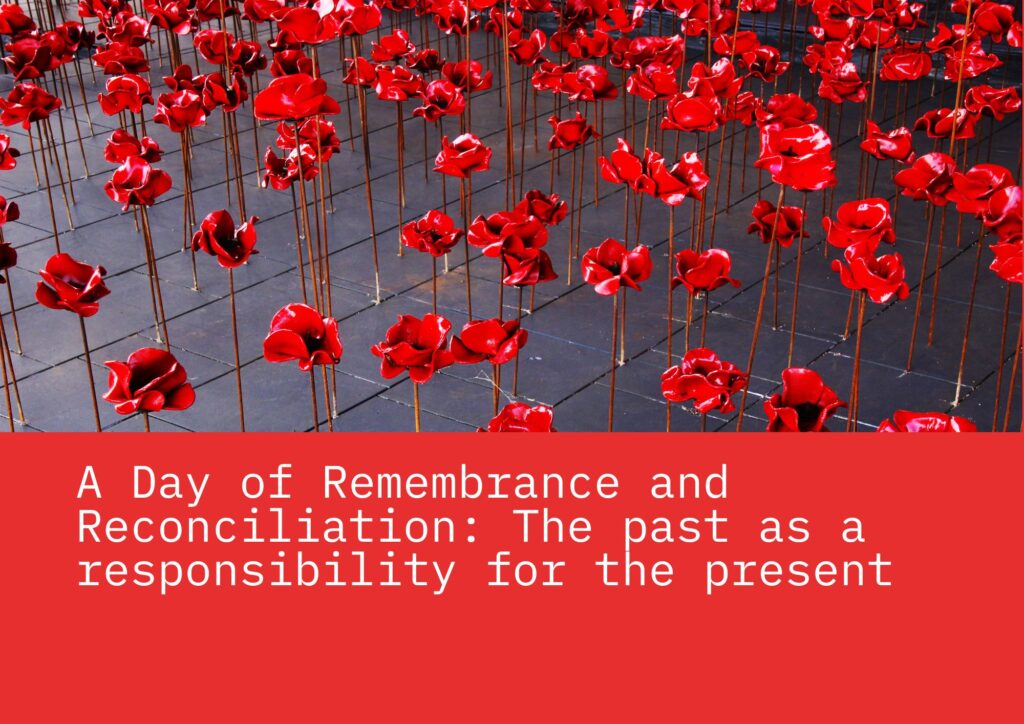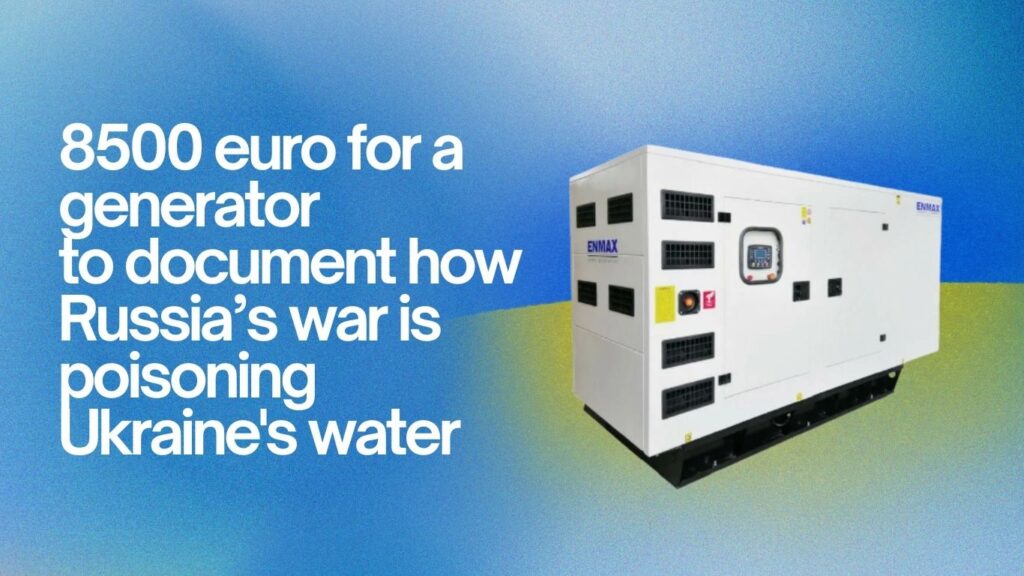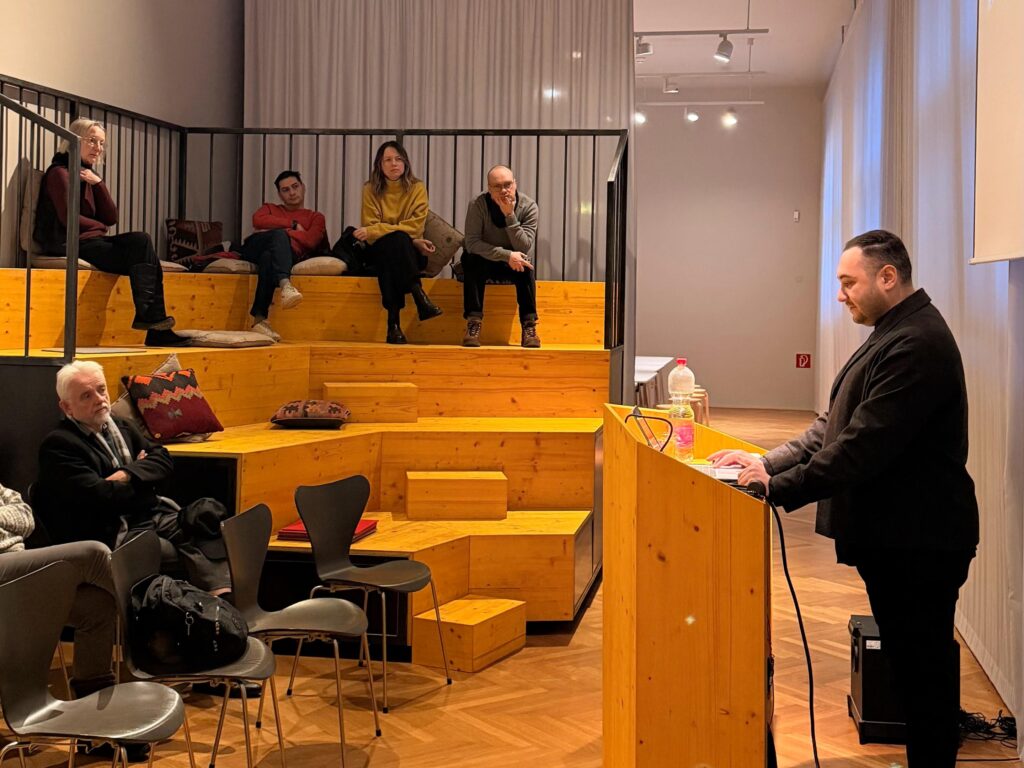May 8 – A Day of Remembrance and Reconciliation. The past as a responsibility for the present
On this day, we commemorate the end of the Second World War — a turning point that reshaped Europe and the world. The victory over Nazi Germany, remembered in Germany as a day of liberation, should have marked the beginning of a new era grounded in peace, cooperation, and shared values across Europe and beyond. And yet, today we are witnessing how the very principles that laid the foundation of post-war Europe are once again under attack — and continue to be challenged every day.
Russia’s full-scale war against Ukraine is not only a case of military aggression; it is also an assault on the values of freedom, democracy, European solidarity, and historical responsibility. It undermines the central lesson of the Second World War: that state violence and territorial conquest must never again be accepted as legitimate. At the same time, we are witnessing a troubling rise in far-right extremism and authoritarian tendencies across Europe and around the world — a development that urges us to reflect on the past and renew our commitment to protecting democratic values, defend human rights and the rule of law.
That is why we asked our partners and experts engaged in civic education and memory work — particularly through our projects Lost in Transition? and Transition Dialogue — how they understand the meaning of May 8 in light of today’s urgent challenges, their historical experiences over the past 80 years, and the societal and political realities we face today.
Olena Pravylo, Ukrainian cultural and civic activist:
“Unfortunately, we still cannot speak of a truly shared European understanding of WWII’s consequences. While ‘never again’ is a common phrase, its meaning differs widely. For Ukrainians, Soviet ‘liberators’ were also colonizers. That makes a unified European memory very difficult. In Ukraine, memory is no longer just about the past — it’s about survival. May 8, once overshadowed by the Soviet-style May 9, is regaining significance as a day of reflection rather than militarized triumph. We are rethinking monuments, rewriting school curricula, and even reshaping our language with a decolonial lens. Today, Ukraine is a living testimony to the danger of ignoring imperial ambitions. Memory without responsibility is dangerous. Europe must act — not just speak — to protect justice, democracy, and dignity. We need solidarity not only in statements, but in systems that truly defend peace.”
Aliaksei Lastouski, Academic Director, Belarusian Institute of Public History:
“The consensus on the results of WWII had two sides: first, the recognition of Nazism as the ultimate evil. Second, the formation of a community of victors responsible for establishing a new world order. Today, this community is rapidly falling apart due to the aggressive war unleashed by Russia. The strategy of isolating Russia and Belarus — excluding them from the community of heirs to the victory over Nazism — is gaining momentum. In Belarus, war memory has been instrumentalized by the regime: political opponents are labeled as heirs of Nazi collaborators, and a law on the genocide of the Belarusian people during WWII is being used for domestic political purposes. Meanwhile, Belarusian civil society raises the issue of decolonization, but repression and exile hinder this process. Please remember: Belarusian society is not the same as the Belarusian regime. And remember, too, that Belarus was at the epicenter of the ‘bloodlands’ — where the Holocaust and mass punitive operations took place. Without understanding this tragic experience, we cannot grasp the full brutality of WWII.”
Sandra Gaučiūtė, Open Lithuania Foundation:
“A shared European memory of WWII is still being formed — and far too slowly. Russia’s aggression reminds us that the lessons of history have not been fully learned. Across Europe, totalitarian thinking is returning: civil society is under pressure, the press is weakened, and historical facts are being replaced by nostalgia and conspiracy. In Lithuania, we know that WWII didn’t end in 1945. What followed was decades of Soviet occupation, which is still poorly understood in much of Western Europe. That’s why we support Ukraine so strongly: we see ourselves in their struggle. May 8 has become more than a remembrance — it is a value-based stance, a moral obligation to act.”
Lusine Kharatyan, Armenian writer and anthropologist:
“While in Ukraine there are initiatives to celebrate May 9 as the Europe day (largely defined around Schuman’s declaration and associated with “peace and unity in Europe”), and thus reinterpreting and revising the symbolic meaning of May 9 in the post-soviet countries (Victory day, commemorating the victory of the Soviet Union over Nazi Germany), in many post soviet countries, and particularly in Russia, it is still perceived as the Victory Day. In Russia, this is a grand demonstration of the country’s power, with a military parade and accompanying events. In Armenia, for years, since the end of the first Artsakh/Karabakh war (1994), May 9 was perceived and called “triple holiday,” celebrating the Soviet Victory in WWII, and liberation of Shushi (a city in Artsakh/Karabakh), which symbolically marked the end of the war. It was celebrated as “Victory and Peace Day.” So, the war in Ukraine did not affect the reinterpretation of commemoration, as much as the Artsakh war, and then its aftermath after the 2020 war and ethnic cleansing of Armenians. These events led to reinterpretation of not only May 9 (its linkage to the victory in First Artsakh/Karabakh war), but also of Armenia-Russia relations, resulting in emergence of stronger decolonization voices/narratives”.
This reflection is just one part of a broader dialogue on memory, responsibility, and the threats we face today. When we remember May 8, we do not only honor the victims. We are called to resist aggression, revisionism, and the weaponization of history.
Memory is not only about commemoration. It’s a call to action.





